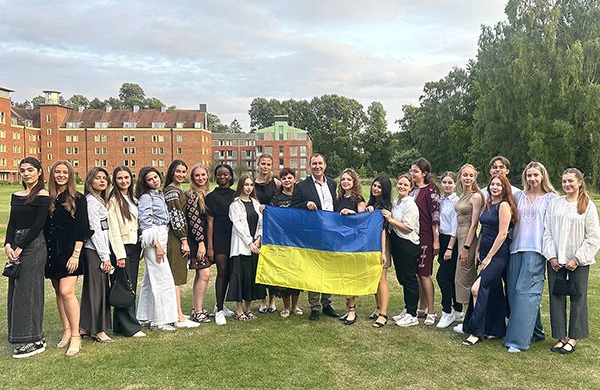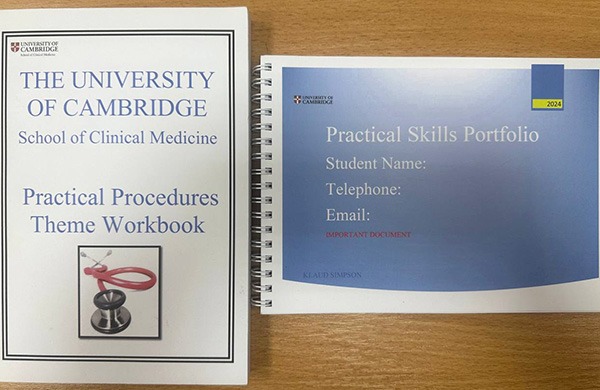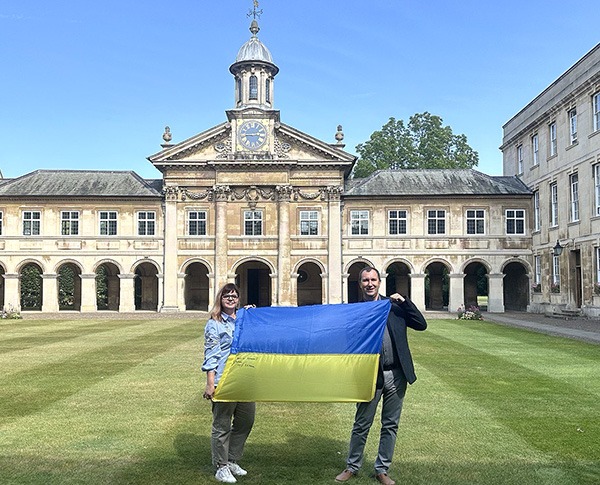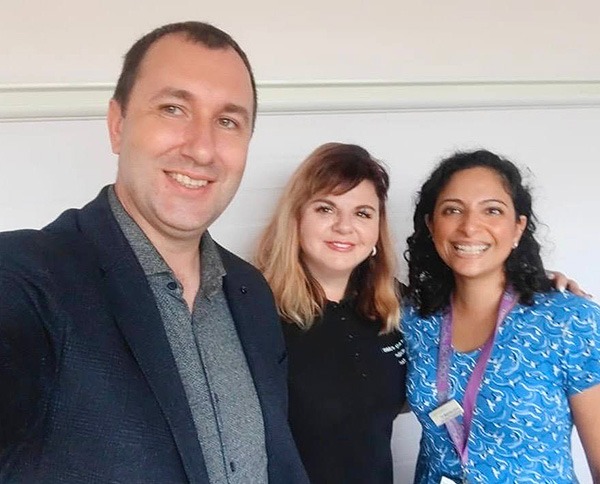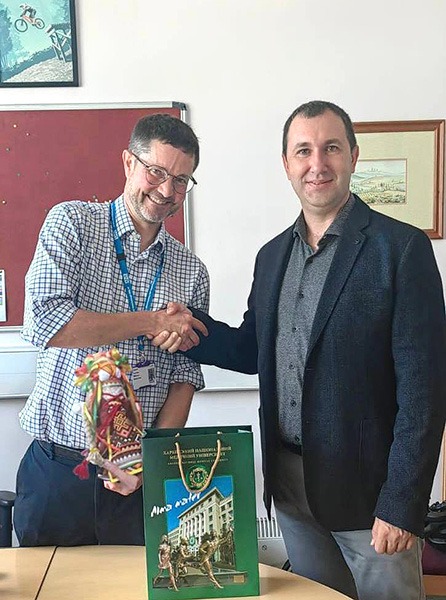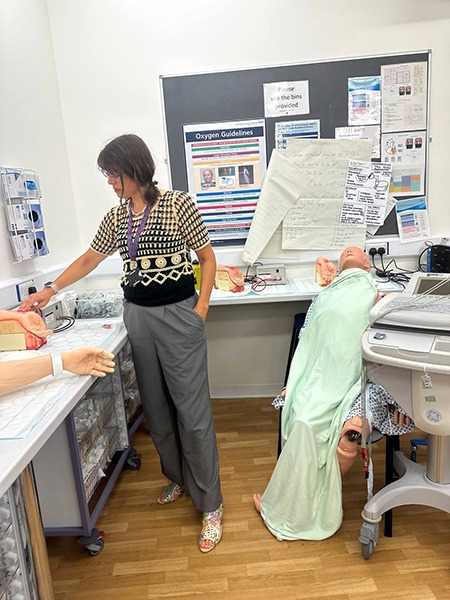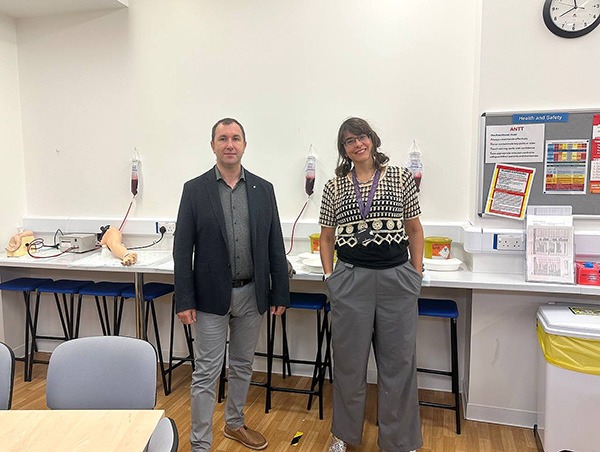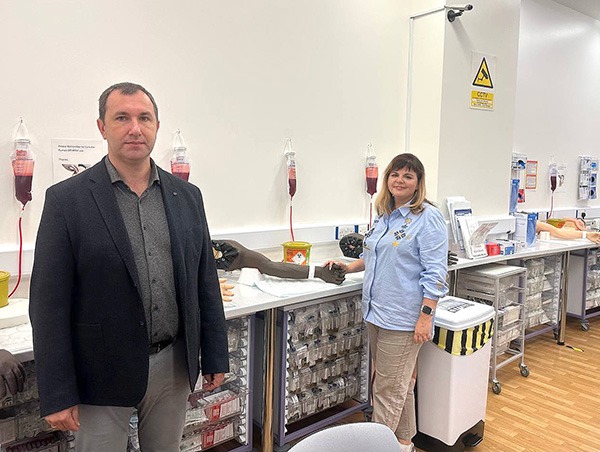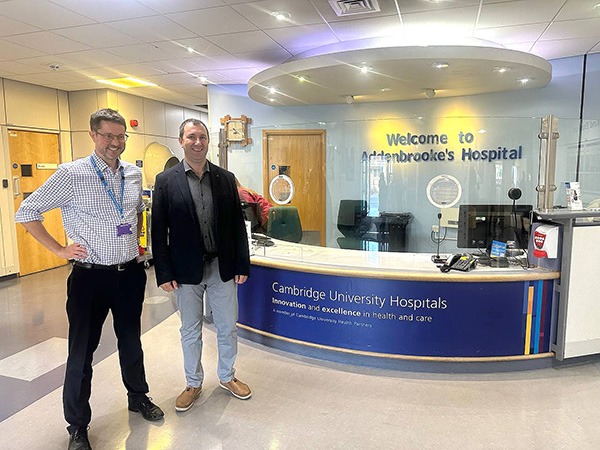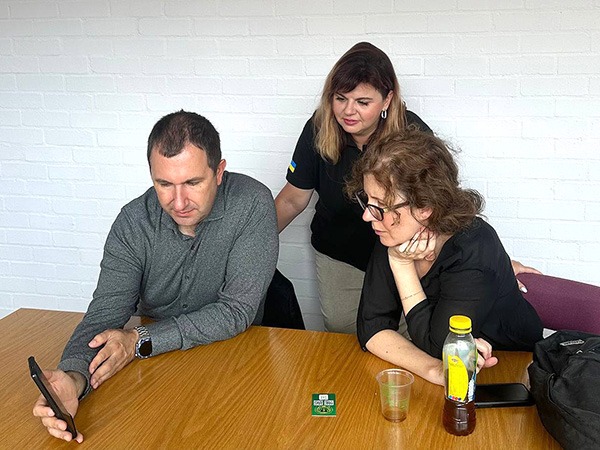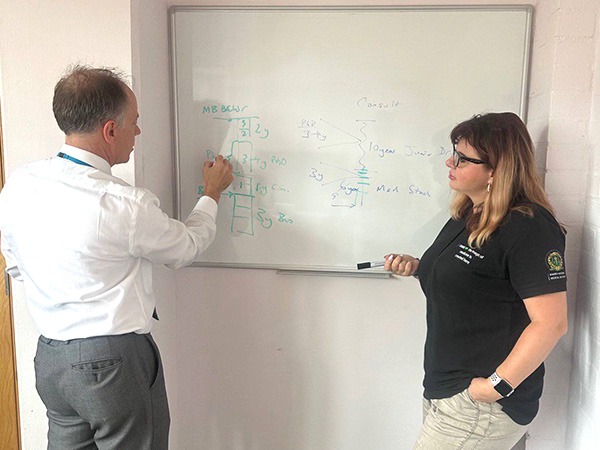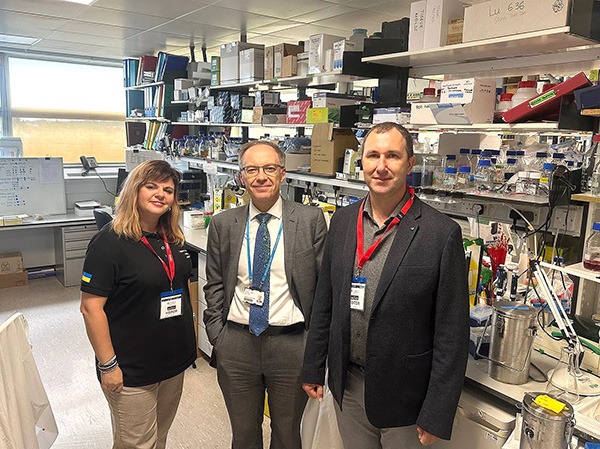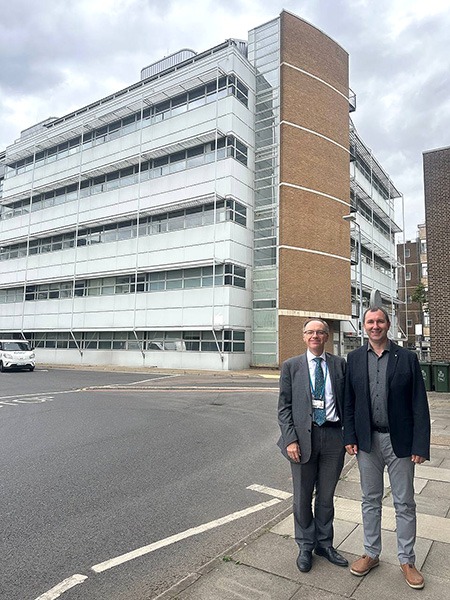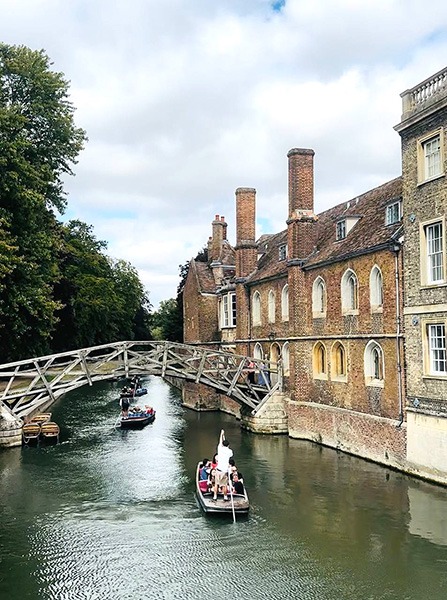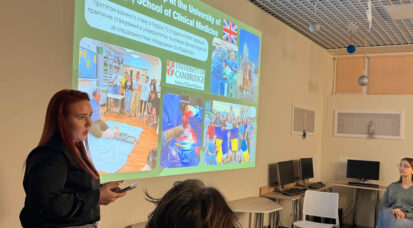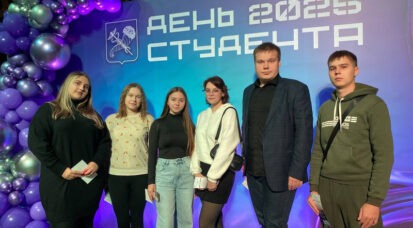Visit to the School of Clinical Medicine
At the end of August, within the framework of the 3rd year of implementation of the Twinning project – twinning between universities of Ukraine and Great Britain, a workshop was visited by representatives of the KhNMU administration to the School of Clinical Medicine under the Rector, masters and scientists of the Cambridge University. Vice-rector of scientific pedagogical work Maksym Khaustov and acting head of the International relations department and grant work office Oksana Vasylieva at the invitation of the Medical Director training and clinical dean of the School of Clinical Medicine Paul Wilkinson visited the city of Cambridge, where for 7 weeks, 20 students of 3-5 years of KhNMU had a practical internship. The clinical base of Cambridge University is Addenbrooke’s multidisciplinary hospital, in which students of the KhNMU have been for the 3rd year in a row have the opportunity to undergo summer industrial practice under the guidance of experienced British doctors and teachers together with students of the Cambridge University.
During their visit, Maksym Khaustov and Oksana Vasylieva had the opportunity to communicate with the management and professors of the School of Clinical Medicine, who shared the experience of theoretical and practical training of medical students profile in the United Kingdom of Great Britain and Northern Ireland. The Director of the MBPhD course, Stefan Marciniak, introduced the KhNMU representatives to the work of the Jeffrey Cheah Center, which ranks second in the world in biomedical education. Clinical Skills Center Manager, Klaud Simpson spoke about the work of Deakin Simulation Medicine Center, where KhNMU students worked out general practical skills before starting the clinical rotation in different departments of Addenbrooke’s Hospital.
In general, all the teachers of the Cambridge University School of Clinical Medicine highly appreciated the level of knowledge and skills of KhNMU students who underwent practical training under their guidance. Yes, in the students’ portfolio that they filled during the internship these are the final comments from the supervisors: “Excellent clinical knowledge that could not even be expected in this course of study!”.
A friendly meeting and dinner were held on the day of the Ukrainian flag between representatives of KhNMU and the Cambridge University School of Clinical Medicine, where Dr. Arthur Gibbley, one of the student curators, presented his author’s book of sketches about the historical and modern Cambridge University to the KhNMU, which will be transferred to the museum of the KhNMU.
Information certificate. The Cambridge University is located in Cambridge, England, Great Britain. The official date of foundation is 1209. The university positions itself as a scientific center and a self-governing community of scientists. Therefore, it gives fundamental education and does not tolerate failure. This position made this educational institution one of the most desirable places of teaching. What is interesting:
- is included in the TOP-10 best higher education institutions in the world;
- is a member of the “Ivy League”, “Golden Triangle” and other prestigious associations research and educational institutions;
- has a huge number of scientific centers and research institutes;
- is the “culprit” of the Cambridge phenomenon: the appearance of 1,500 new high-tech companies in the vicinity of the city;
- the names of 92 Nobel Prize laureates are associated with it;
- among the graduates – I. Newton, F. Bacon, D. Maxwell, C. Darwin, F. Crick, D. Watson, I. Wilmut, E. Rutherford, R. Oppenheimer and other famous people.
Features of training:
- has a federal system;
- recognized as the richest educational institution in Great Britain and Europe;
- an effective system of education: lectures at university departments and observation
- (experiments) on the basis of colleges;
- the university receives the largest grants and contracts for scientific research;
- financed by the state, but completely autonomous;
- consists of 31 colleges (28 mixed and 3 women’s), which do not have narrow specializations;
- united departments, colleges, scientific institutes by direction, creating 6 scientific schools;
- has large campuses, a dozen museums, a Botanical Garden, 114 libraries, historical buildings, galleries and collections;
- preserved traditional dinners, garden parties and other special events and traditions.
Faculties (schools) of Cambridge:
- physical sciences;
- biology;
- arts and humanities;
- clinical medicine;
- humanitarian and social sciences;
- technologies.
Training programs:
- bachelor’s degree;
- master’s degree;
- doctoral studies.

